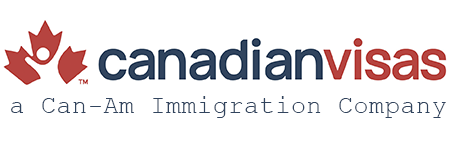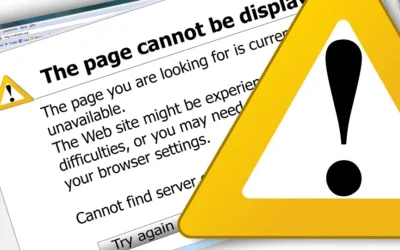In a significant policy shift, Immigration, Refugees, and Citizenship Canada (IRCC) has announced a major overhaul of the Express Entry system, removing 19 key tech-related occupations from the STEM category. This decision alters the immigration landscape for thousands of professionals, raising important questions about Canada’s labor market priorities and long-term immigration trends.
While these changes may limit direct PR pathways for many tech professionals, they also create new opportunities for other sectors. Below, we break down who benefits, who faces new challenges, and what affected workers can do to future-proof their immigration plans.
Who Are the Losers? Tech Workers and Express Entry Candidates
The most immediate impact of this policy shift falls on foreign tech professionals hoping to immigrate through Express Entry’s STEM category. The following 19 occupations have been removed, meaning candidates in these roles will no longer receive category-based invitations:
| Occupation | NOC Code |
|---|---|
| Software engineers and designers | 21231 |
| Computer engineers | 21311 |
| Data scientists | 21211 |
| Web developers and programmers | 21234 |
| Database analysts and data administrators | 21223 |
| Mathematicians, statisticians, and actuaries | 21210 |
| Information systems specialists | 21222 |
| Computer systems developers and programmers | 21230 |
| Engineering managers | 20010 |
| Business systems specialists | 21221 |
| Computer and information systems managers | 20012 |
| Metallurgical and materials engineers | 21322 |
| Architects | 21200 |
| Landscape architects | 21201 |
| Urban and land use planners | 21202 |
| Land surveyors | 21203 |
| Natural and applied science policy researchers | 41400 |
| Web designers | 21233 |
| Software developers and programmers | 21232 |
For tech professionals who were relying on Express Entry’s STEM category as their primary pathway, this change increases competition and lowers their chances of being invited without additional factors such as job offers or provincial nominations.
Who Are the Winners? Healthcare, Trades, and Engineering Sectors
While the tech sector faces new hurdles, other professions gain a significant advantage under these Express Entry adjustments. IRCC has added six new occupations to the STEM category:
| Occupation | NOC Code |
|---|---|
| Civil engineering technologists and technicians | 22300 |
| Electrical and electronics engineering technologists and technicians | 22310 |
| Geological engineers | 21331 |
| Mechanical engineering technologists and technicians | 22301 |
| Mechanical engineers | 21301 |
| Insurance agents and brokers | 63100 |
Beyond STEM, healthcare, skilled trades, and education-related occupations continue to receive prioritizationunder Express Entry’s category-based invitations. This signals a shift in Canada’s labor market focus, prioritizing industries facing severe worker shortages.
What’s driving this shift?
- Labor shortages: Canada’s tech sector, while growing, is not experiencing the same labor crisis as healthcare, trades, and engineering.
- Economic adjustments: With rising layoffs in tech, the government may believe demand for foreign talent in this field is declining.
- Political considerations: The government often tailors immigration policies to match employer demands and public concerns over economic stability.
Future-Proofing Your Immigration Strategy: What Tech Professionals Should Do Next
If you’re a tech professional impacted by these changes, this doesn’t mean your immigration journey is over. You can still strategically adjust your approach to improve your chances of securing permanent residency.
1. Explore Provincial Nominee Programs (PNPs)
Many provinces have tech-focused PNPs that operate independently of Express Entry’s STEM category. Programs such as:
- Ontario’s Human Capital Priorities Stream
- British Columbia’s Tech Stream
- Alberta Accelerated Tech Pathway
- Saskatchewan Tech Talent Pathway
These remain viable options for tech professionals, even if Express Entry no longer prioritizes them.
2. Secure a Job Offer to Boost CRS Scores
While category-based invitations no longer favor many tech occupations, Express Entry still works on a points-based system (CRS). A valid job offer can provide 50–200 additional CRS points, significantly improving your selection chances.
3. Consider Work Permits That Lead to PR
Rather than relying on Express Entry alone, many tech professionals can still come to Canada through work permits like:
- Global Talent Stream (GTS): Fast-tracked work permits for high-demand tech jobs.
- Intra-Company Transfer (ICT): If working for a multinational, this allows relocation to Canada.
- LMIA-based Work Permits: Canadian employers can sponsor foreign workers for specific roles.
Once in Canada, workers can later apply for PR through pathways such as the Canadian Experience Class (CEC).
4. Explore Career Flexibility
For those who have overlapping skill sets, transitioning into an in-demand field could be an option. For example:
- Mechanical engineers (NOC 21301) and civil technologists (NOC 22300) remain in STEM
- AI specialists and cybersecurity professionals may still qualify under certain PNPs
5. Stay Updated and Be Ready for Future Changes
Express Entry has changed significantly over the years, and these removals may not be permanent. Immigration policies often evolve based on political and economic needs. Those who remain adaptable and proactive with their immigration strategies will have the best chances of success.
Canada’s Immigration Priorities Are Evolving
While these Express Entry changes may seem like a setback for tech professionals, they underscore the importance of having a diversified immigration strategy.
- If you’re a tech worker, look beyond Express Entry—PNPs, job offers, and work permits still offer strong pathways.
- If you’re in healthcare, skilled trades, or engineering, this could be the best time to apply.
- Stay informed, as Express Entry may continue evolving in response to labor market needs.
For those unsure about their next steps, professional guidance can help navigate these shifting policies and ensure the best possible immigration outcome. Schedule a consultation here!





0 Comments